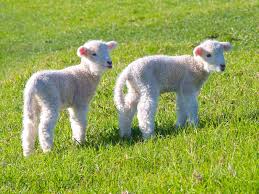
Predictably, the ethnic groups that correlate the strongest with being born in New Zealand were those whose waves came here first. With being born in New Zealand, being Maori has a correlation of 0.70, and being European has a correlation of 0.33. Being a Pacific Islander has a correlation of -0.39 with being born in New Zealand, and being Asian has one of -0.88.
It’s not really surprising that Maoris are most likely to be born in New Zealand when one considers that there are very few Maoris born overseas who could have opportunity to move here. It’s also predictable, given that the second great wave of settlement was European, that people born here are more likely than not to be European.
Some might be surprised at the absence of a strong negative correlation with being a Pacific Islander and being born in New Zealand, since Islanders are generally portrayed as immigrants in popular culture. However, the start of the Pacific Islander migration to New Zealand was in the early 1970s, and it has now been forty years since then. So many of the Pacific Islanders born in New Zealand will also have parents (or one parent) that are born here.
One correlation that might surprise many is the one of -0.24 between being born in New Zealand and being Christian. After all, we often hear rhetoric about how this is a Christian country. But it’s more Kiwi to be a post-Christian than an actual Christian.
However, there was a moderately strong correlation between being born in New Zealand and being Anglican – this was 0.42.
Being a Spiritualist or New Ager has a correlation of 0.44 with being born in New Zealand, and having no religion at all has a correlation of 0.49 with being born here. These are moderately strong correlations, and reflect the degree to which more mature cultures tend to reject the more juvenile religious traditions.
Being Christian had a correlation of 0.46 with being a Pacific Islander, which is moderately strong, and allows us to conclude that immigration from the Pacific Islands has left New Zealand a much more Christian country than it otherwise would have been.
Perhaps predictably, being born in New Zealand had a correlation of -0.38 with voting to change the flag in the second flag referendum. It’s understandable that those born in the country will have more loyalty to its traditions than those born outside of the country. For some of the voters in the referendum, who had recently moved to New Zealand, the current flag didn’t hold enough emotional investment to overweigh the National Party flag.
The New Zealand-born are also significantly poorer than immigrants as a whole. The correlation between being born in New Zealand and median personal income was -0.32. The major reason for this is that our immigration policy heavily discriminates against potential immigrants who are not able, or less able, to pay their way. Generally a person needs a high-paying profession or a fat wad of cash to be allowed to immigrate here.
The strongest correlation between being born in New Zealand and any income bracket was the $25-30K bracket – here there was a correlation of 0.79. With being born outside of New Zealand the strongest correlation was 0.40 with the $100-150K bracket.
Given that, it is entirely unsurprising that there is a strong correlation between being born here and having no academic qualifications – this is 0.74. The flip side of this is, predictably, that the correlation between being born in New Zealand and having a Master’s degree is -0.59.
It’s easy to believe, then, that the correlation between being born in New Zealand and being on the unemployment benefit is 0.53, hefty enough to be more than significant. Even more so, understandly, is the correlation between being born in New Zealand and being on the invalid’s benefit, which is 0.74. This strong correlation can be explained simply by considering how difficult it would be for anyone incapacitated enough to go on an invalid’s benefit to successfully immigrate.
Following the general trend that immigration is easier the higher one’s social class, it can be observed that being born in New Zealand correlates significantly with working-class occupations. With working in healthcare the correlation is 0.57, with agriculture, forestry and fishing it is 0.55, with manufacturing it is 0.46 and with healthcare and social assistance it is 0.45.
Correspondingly, the correlation between being born overseas and working in financial and insurance services is 0.61, with wholesale trade it is 0.53, with professional, scientific and technical services it is 0.51 and with information media and telecommunications it is 0.48.
Smoking patterns fall along the lines one might predict once it is understood that immigrants to New Zealand are generally more middle-class than the natives, and that usually only people who are a bit hard done by smoke tobacco. The correlation between being born in New Zealand and being a regular smoker was 0.75, and with having never smoked it was -0.81. Considering that smoking is highly correlated with being Maori this is not especially exciting.
New Zealand-born Kiwis, though, are significantly more likely to bike to work – the correlation between the two was 0.28.
*
This article is an excerpt from Understanding New Zealand, by Dan McGlashan, published by VJM Publishing in the winter of 2017.
